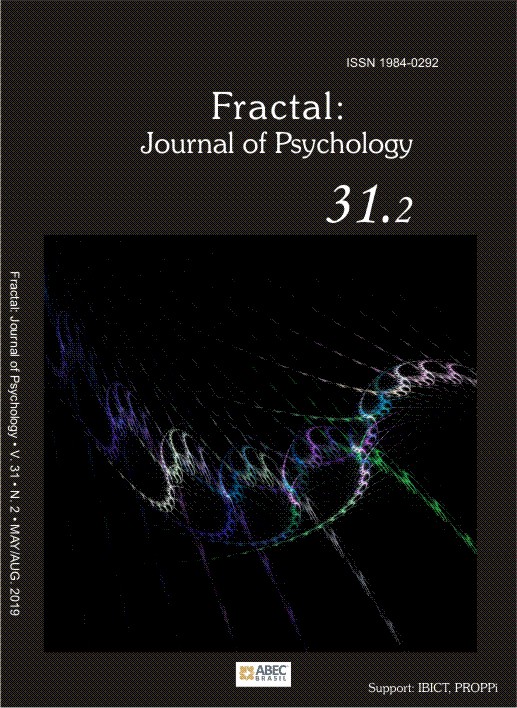Decolonizing psychology: notes for a Black Psychology
DOI:
https://doi.org/10.22409/1984-0292/v31i_esp/29000Keywords:
colonization, Black Psychology, mental healthAbstract
This article investigates the effects of colonization on the production of subjectivity and on the production of knowledge, especially its development in the training of psychology professionals. In order to demonstrate the fragility of the training in psychology in Brazil for the treatment of the impacts of racism on black subjectivities, the article presents mental health epistemologies historically erased in the curricula of the graduations. We have retaken the work of Wade Nobles, Naim Akbar, Neusa Santos Sousa, among other black intellectuals and articulated it with our clinical experience to address black subjectivities and how they can be taken care of considering all their singularity. We have concluded that we cannot take care of Brazilian black population’s mental health without an epistemological retake of black intellectual work on the subject and that the quilombola dimension instated in the clinical environment when black psychologists take care of black patients is essential in the mental health promotion of black population. We finalized stablishing clinical and political directions to an expansion of a Black Psychology in Brazil.Downloads
References
AKBAR, Na’im. Papers in african psychology. Flórida: Mind Productions, 1975.
ASANTE, Molefi Kete. Afrocentricidade: notas sobre uma posição disciplinar. In: NASCIMENTO, Elisa (Org.). Afrocentricidade: uma abordagem epistemológica inovadora. São Paulo: Selo Negro. 2009. p. 93-110.
BREUER, Josef; FREUD, Sigmund. Estudos sobre Histeria (1895). Rio de Janeiro: Imago, 1995. v. 2.
CARNEIRO, Sueli. Racismo, sexismo e desigualdade no Brasil. São Paulo: Selo Negro, 2011.
FANON, Frantz. Pele negra, máscaras brancas. Salvador: EDUFBA, 2008.
GUATTARI, Félix. Caosmose. São Paulo: Editora 34, 1992.
MIGNOLO, Walter. Desobediência epistêmica: a opção descolonial e o significado de identidade em política. Cadernos de Letras da UFF: Dossiê: Literatura, língua e identidade, Niterói, n. 34, p. 287-324, 2008. Disponível em: http://www.cadernosdeletras.uff.br/joomla/images/stories/edicoes/34/traducao.pdf. Acesso em: 20 jun. 2018.
MBEMBE, Achille. Políticas da inimizade. Lisboa: Antígona, 2017.
MOMBAÇA, Jota. Rumo a uma redistribuição desobediente de gênero e anticolonial da violência. Issuu, 2016. Disponível em: https://issuu.com/amilcarpacker/docs/rumo_a_uma_redistribuic__a__o_da_vi. Acesso em: 17 jan. 2019.
NASCIMENTO, Abdias. Quilombismo: um conceito emergente do processo histórico-cultural da população afrobrasileira. In: NASCIMENTO, Elisa (Org.). Afrocentricidade: uma abordagem epistemológica inovadora. São Paulo: Selo Negro, 2009. p. 197-218.
NASCIMENTO, Beatriz. O conceito de quilombo e a resistência cultural negra. Revista Afrodiáspora, n. 6-7, p. 41-49, 1985.
NIETZSCHE, Friedrich. A gaia ciência (1882). São Paulo: Companhia das Letras, 2012.
NOBLES, Wade. Sakhu Sheti: retomando e reapropriando um foco psicológico afrocentrado. In: NASCIMENTO, Elisa. (Org.) Afrocentricidade: uma abordagem epistemológica inovadora. São Paulo: Selo Negro, 2009. p. 277-298.
PRAÇA Paris. Roteiro: Lucia Murat e Raphael Montes. Direção: Lucia Murat. Produção: Felicitas Rafo, Lucia Murat e Luís Galvão Telles. Intérpretes: Grace Passô, Joana de Verona, Babu Santana, Daniel Braga. Música: André Abujamra e Márcio Nigro. Brasil: Imovision, 2018. 1 DVD (110 min.), color.
SOUZA, Neusa Santos. Tornar-se negro. Rio de Janeiro: Graal, 1983.
VEIGA, Lucas Motta. O analista está presente: a arte da performance de Marina Abramovic e a clínica. Dissertação (Mestrado em Psicologia). 2015. 75 f. Programa de Pós-graduação em Psicologia da Universidade Federal Fluminense, Niterói, 2015. Disponível em: https://app.uff.br/slab/uploads/2015_d_Lucas.pdf. Acesso em: 17 jan. 2019.
VEIGA, Lucas Motta. Qual a cor da Psicologia no Brasil? Jornal do Brasil, Rio de Janeiro, RJ, 9 set. 2018a. Opinião, p. 9. Disponível em: https://www.jb.com.br/pais/artigo/2018/09/4697-qual-a-cor-da-psicologia-no-brasil.html. Acesso em: 16 dez. 2018.
VEIGA, Lucas Motta. As diásporas da bixa preta: sobre ser negro e gay no Brasil. Revista Tabuleiro de Letras, Salvador, v. 12, n. 1, p. 77-88, 2018b. http://dx.doi.org/10.35499/tl.v12i1.5176
Downloads
Published
How to Cite
Issue
Section
License
Authors publishing in this journal agree to the following terms:
- Authors retain copyright and grant the journal the right of first publication, with the work simultaneously licensed under the Creative Commons Attribution License allowing sharing of the work with acknowledgement of authorship of the work and initial publication in this journal.
- Authors are permitted to enter into additional contracts separately for non-exclusive distribution of the version of the work published in this journal (e.g., publishing in an institutional repository or as a book chapter), with acknowledgment of authorship and initial publication in this journal.

This work is licensed under a Creative Commons Attribution 4.0 International License.
To the extent possible under the law, Fractal: Journal of Psychology has waived all copyright and related rights to the Reference Lists in research articles. This work is published in: Brazil.
To the extent possible under law,Fractal: Journal of Psychology has waived all copyright and related or neighboring rights to Reference lists in research articles. This work is published from: Brazil.







